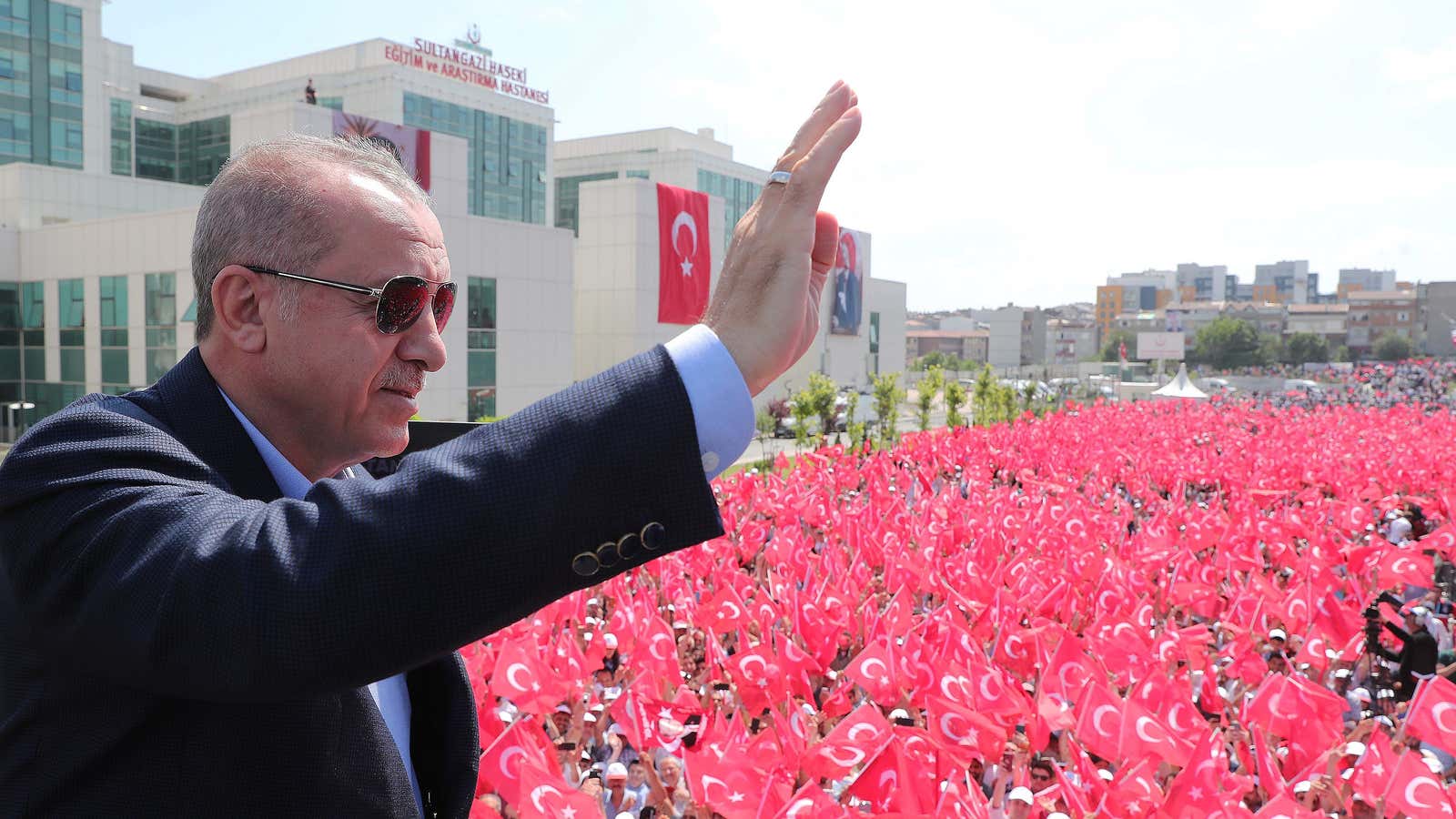“Of course our central bank is independent,” Turkish president Recep Tayyip Erdogan said last year. “But the central bank can’t take this independence and set aside the signals given by the president.”
Erdogan sent a strong signal this weekend, firing central bank governor Murat Cetinkaya via presidential decree on Saturday (July 6). Cetinkaya’s term as central bank chief had another year to run. He will be replaced by deputy governor Murat Uysal, according to the decree.
Erdogan has long been frustrated with the central bank, which he blames for Turkey’s deteriorating economy, which slipped into recession in the first half of this year. Last year, the lira shed nearly 30% of its value against the dollar, and inflation surged to 25%.
To rein in spiraling inflation, the central bank under Centinkaya hiked interest rates aggressively. When he took over in early 2016, the bank’s target rate was 7.5%; today, it sits at 24%. This orthodox approach to addressing inflation didn’t sit well with Erdogan, who, unusually, thinks that high interest rates cause inflation.
Few heads of state go that far, even if they almost always think that interest rates are too high (see Donald Trump’s long-running feud with the Federal Reserve). Erdogan, however, has acted on his unorthodox impulses, bullying the central bank, antagonizing investors, and consolidating personal power over economic institutions (his son-in-law took over as finance minister last year).
The increasingly shaky independence of Turkey’s central bank will be tested later this month, at its scheduled rate-setting policy meeting. The lira has stabilized and inflation is down from its recent highs, stoking expectations for a small rate cut. Analysts now warn of a “credibility constraint” on the central bank, which is clearly under pressure from the president to slash rates more deeply than expected. Such a cut would satisfy Erdogan, but also make the significant dollar-denominated debts of Turkish borrowers (including the government) a bigger burden.
In short, when markets open on Monday, a renewed drop in the lira could make the central bank’s job even harder than it already is. Moody’s downgraded Turkey’s debt last month, the IMF forecasts that the economy will shrink by 2.5% this year, and the country may face US sanctions in retaliation for its purchase of a Russian-made missile system. Erdogan shows few signs of letting up on his contrarian, conspiratorial approach to economic policymaking, but he can’t set aside the signals given by the market.
